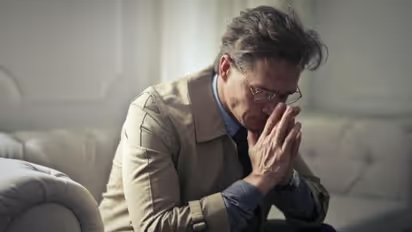Mental Health: What happens to stroke survivors? Know psychological impact of stroke

Synopsis
Stroke survivors often grapple with a range of psychological challenges that can significantly affect their recovery and quality of life. Many experience depression and anxiety, along with cognitive issues that impact memory and behaviour. Some may even face post-traumatic stress disorder.
Acknowledging these emotional and mental health struggles can help caregivers and healthcare providers develop more effective management strategies. This awareness supports better treatment and fosters a more compassionate approach to helping survivors navigate their healing journey.
Addressing the mental morbidity of patients suffering from strokes, assessment and screening of such patients using numerous scales form the prime objective.
1. Psychotherapy: Family members must provide more emotional support. They must also understand their psychological and behavioural status, and then the recovery procedure can be guided. The minimum possible activities should be involved in their lives.
2. Pharmacotherapy: If patients do not show any response towards psychotherapy, then anxiolytic and anti-depressant medication can be initiated.
3. Rehabilitation: Physical activity every day may improve the mood and reduce symptoms of depression and anxiety.
4. Education and Support: Patients with others who have gone through strokes can also provide emotional support to patients and reduce the sense of isolation.
5. Holistic Approaches: Meditation, yoga, and breathing exercises may help reduce anxiety and improve emotional well-being. Healthy diet, regular exercise, and sleeping habits also improve mental health.
The psychiatric challenges facing stroke patients can be responded to through a holistic approach in their treatment. This multi-model, psychotherapy, medication, rehabilitation, education, and holistic practices-all-or-so-called therapies in a way work together to enhance the well-being of stroke patients' mental state.
After achieving these psychological needs, we would have created a supportive environment to facilitate better recovery and quality of life for survivors. This integrated approach helps heal emotions and allows for a person's development and independence.
- Dr. Amrut S D, Associate Consultant Neurology, Manipal Hospital Goa
Explore the latest Lifestyle News covering fashion, wellness, travel, Food and Recipes, and more. Stay updated with trending Health News, fitness tips, and expert insights to inspire your daily living. Discover personalized lifestyle trends that keep you stylish and informed. Download the Asianet News Official App from the Android Play Store and iPhone App Store for everything that adds value to your everyday life.